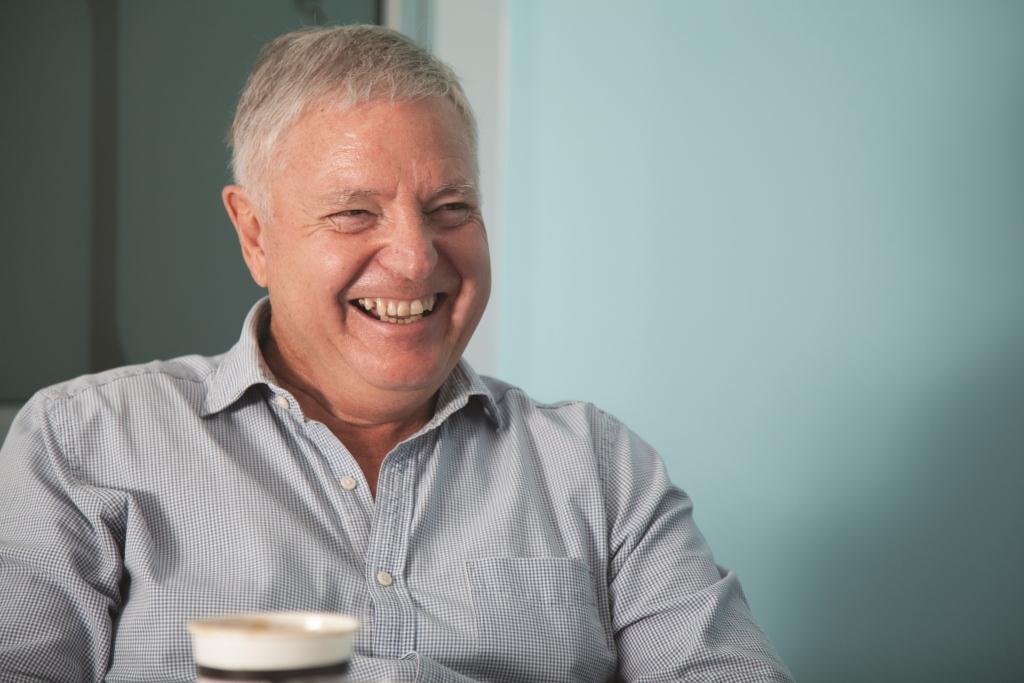He doesn’t look much like a multimillionaire but Michiel le Roux has done for banking what Bill Gates did for software and Muhammad Ali for boxing. He wears his net worth lightly, but a very task of creating a bank that in 15 years has forced its way into the top five in South Africa’s competitive industry.
“We said let’s build a bank and we were not going to experiment on a small scale, we always stayed very close to our clients and we knew what we wanted to bring to the industry,” says Le Roux.
Capitec was born in the worst of times. In the days leading up to its launch, Saambou Bank, one of South Africa’s significant players, went bankrupt. It was a very public collapse that did the image of banking no good at all. Lines of people appeared on TV news desperate to get their money out.
“The Reserve Bank closed them on a Saturday to minimize the impact on the markets and we listed Capitec Bank Holdings Ltd on the Johannesburg Stock Exchange on Monday, 18 February, 2002, the week later. That was a terrible time to list a bank and it also meant it was a terrible time to get finance whatsoever. I know I sound like an old man saying you learn from your mistakes but it’s true. Starting a business in good times is always very dangerous because you will think business is easy when the wind is blowing from behind and the sailing is smooth. When you start with wind blowing from ahead, then you know business is tough and you grow,” he says.
To survive, when others failed wasn’t easy.
Loading...
“It’s a hard slog to create the infrastructure, to network, to decide what you want to do. We take pride in the fact that at that stage, when we were also starting, Old Mutual had a retail banking license and they wanted to start a retail bank. They were looking for systems when we were looking for systems and the rumor mill had that they paid out R800 million ($60 million) for their system and that was when the rand was about R4 to the dollar but they never opened that bank because they couldn’t make it work.”
About a decade ago, few deposited their salaries into Capitec, most had never heard of it. Today, Capitec has over 7.3 million active clients, 792 branches, 11,440 employees and holds R13.7 billion ($1 billion) in shareholders’ funds. For Capitec, simplicity is everything.
At Capitec, they take simple seriously. No suits, the CEO’s office is the same size as everyone else’s, the CEO shares a personal assistant, no personalized parking spots, even the guard at the gate calls him Michiel, while the receptionist jokes freely about his sense of style – or lack thereof.
“Here, there is no distinction between people. Nobody flies business class. How you fly, where you stay, the rental car you drive is the same whether you are the CEO or the junior in the company. Everyone gets the same treatment.”
There is a business reason for this. Everyone is important.
“A bank always determines the value of the client based on their net worth which to this stage in my mind doesn’t make sense because a guy with high net worth might be very frugal with the use of his credit card whereas a guy with a much lower net worth might be exorbitant with his credit card use. The guy that is exorbitant should be much higher in the rankings but banks don’t look at it that way.”
“If you are a factory worker and earn very little, they were not that interested in you and that to me was a failure on banks not accommodating the lower income people,” he says.
This simplicity and business acumen has made Le Roux a rich man; the 38th richest in Africa to be exact, according to FORBES. In just 15 years, this fortune has grown rapidly. It has nearly doubled from around $290 million in 2011.
It has earned him recognition by the publication you are reading.
“Michiel Le Roux has been a bold entrepreneur this year and an example to others in business,” says one of the FORBES AFRICA Person of the Year judges.
You can bank on him.
Loading...
